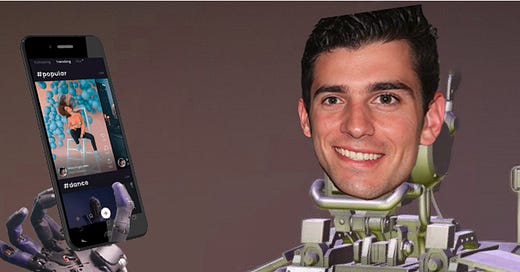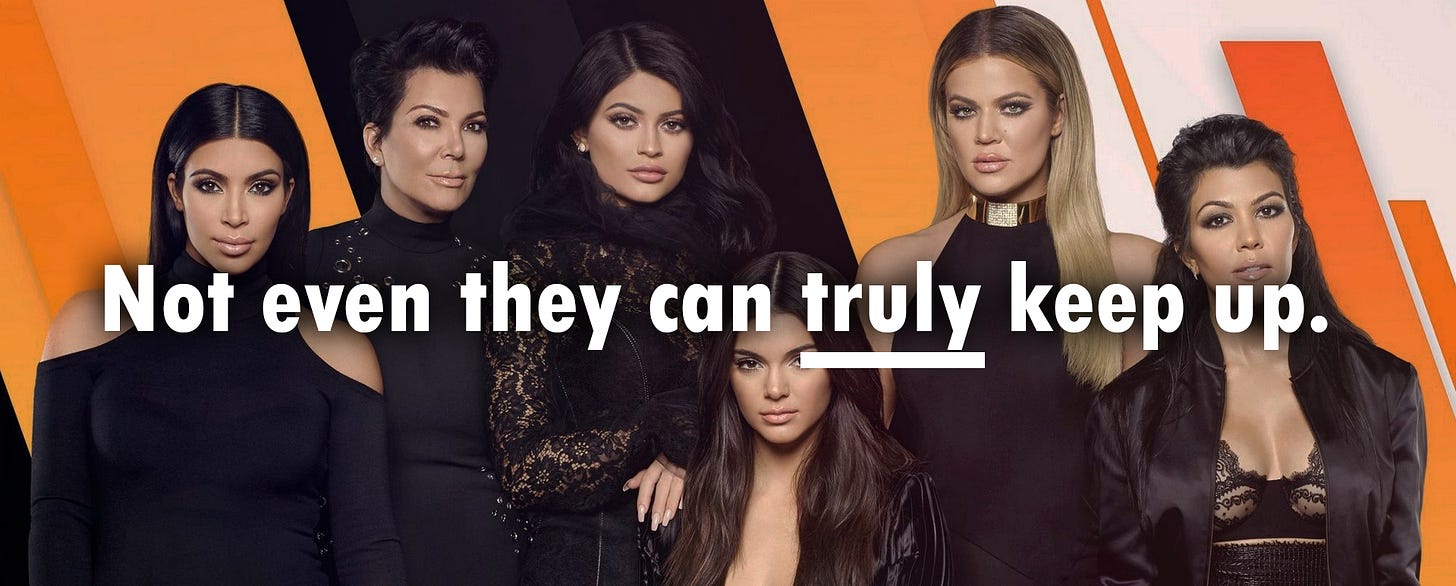You are not a brand
Social media is a useful tool for promoting brands and reaching customers. But if the thing you're selling is yourself, you'll always feel empty.
I’ve written before how a social media profile is not a person. In short: the things you’re seeing from your friends online; the posts, stories, etc., are not the same thing as your friends themselves. The point I was making is that you are not going to offend anyone by removing yourself from social media because the relationship you’re leaving isn’t really a relationship with your friend. Interpersonal relationships are the time invested, and it can’t be automated away or replaced with a daily feed of “updates” (shared not with you, but with anybody who will listen).
But there’s also the other perspective to consider, the perspective of the one doing the posting. Social media platforms strongly encourage their users to not be “lurkers” (ie, someone purely consuming content and not producing it) because without bottomless endless content, people have less to look at, spend less time scrolling on the platform and see fewer ads. The search for newness and novelty is fundamental to the human condition, and it’s also the hijacking of this desire that keeps people scrolling far longer than they may have intend to. New content is the top priority for the platforms, but like a slot machine that never pays out, a social media feed that consists entirely of uninteresting and low-quality content becomes stale fast. That’s why to users who are already somewhat active, the algorithm prioritizes their quality (or at least "interesting”) content, because ultimately it keeps eyes on the platform longer.
“Content creators” (yes, even the people who only post pictures of their food) are rewarded and incentivized to not only post frequently, but to put more effort into every post. Not just quantity, not just quality, both. And as much effort invested as you possibly can spare.
It’s easy to see how someone can slowly go from a “lurker”, to “family and friends only” to a “casual poster” to (consciously or not) posting content that will generate the most likes, the most interaction, and benefit the company the most.
There is something this incentivizing works really really, well for, and that is people with something to sell. Or more specifically: brands. And it’s probably a good thing; local stores and restaurants are more or less on equal footing with giant mega-corporations in regards to time your eyeballs look at their Instagram posts.
If you are running a small business (or you ARE a small business), there is nothing to feel guilty about establishing a presence on social media to promote it. I’m not even talking about targeted advertising, which is also a boon to niche and local businesses that couldn’t otherwise afford wide-net advertising methods like a highway billboard or television commercial.1
Social media can be great for branding, but it’s important to remember that while you are not a brand the algorithm will still nudge you into behaving like one.
The Curated Self Image
The dangers of “the curated self” have been trumpeted in regards to social media for a long time now, to the point where it’s becoming common knowledge so I won’t go into depth on it. Yes, everyone should be careful not to fall into the trap of seeking emotional validation from others online. But the think pieces that discuss the topic, often treat the tendency for people (especially for young people) to life a “false life” online as though it wasn’t specifically engineered by these large corporations.
If you are using social media to promote your business and reach customers, great. That’s pretty much what it’s all there for. If you are using it to promote yourself and reach new fans or followers, well, that’s what it’s there for too. But just like one can never have enough money, there’s no upper limit on the number of followers either. The people who know your profile do not know you. They may love your “personal brand”, but no matter how you twist and contort your life in an attempt to capitalize on the love and attention, you’ll never be the brand.
“Stay true to yourself” is age-old advice rarely taken, but in the context of social media it takes on a more urgent tone. In the online world, we are given an opportunity to foremost present our “best” (ie: most marketable) selves to strangers and essentially guarantee a great first impression. But in the real world, that first impression and the fuller more nuanced picture of you, will quickly converge into something resembling reality. This is the process by which we have meaningful friendships and fall in love.
Social media companies want you to be beautiful, fit, and interesting all the time because it makes them money. They want your brand to be a part of their brand. It’s a good relationship if your goal is to generate money too. But if the thing you’re selling is yourself, you’ll end up empty inside.
I’d like to take a brief moment to point out that artists and creative types -while having nothing to feel guilty about promoting their work on social media- probably should be very wary over the algorithm’s ability to influence the direction and tone of their work towards broad appeal and banality. Yes, working artists also have a brand and image to worry about, but when it comes to art: having “the most eyes on it” or “the highest price” is often inverse-correlated with it’s potential for true meaning and emotional depth (presumably a top priority for many artists).







I really love this, just stumbled on the air method and going to check it out.
As someone who writes compulsively, there is a feeling of desperation that pushes me to be more present on social media when I am struggling financially or have something I’ve worked hard on I want to get “good engagement” for online.
I took a job in tech sales recently, and it’s improved my writing immensely. But it has also made me conscious of how much unconscious pressure there is to “optimize “everything you make to fit to the whims of the algorithm.
I was conscious of this when it came to actual content, but I’ve been thinking more and more about the ways in which the algorithm also shapes how we reach out to other people, and what we consider a “community “, especially as walled gardens become the future of the Internet.
Appreciate you and everything you have in this newsletter, looking forward to exploring your work.